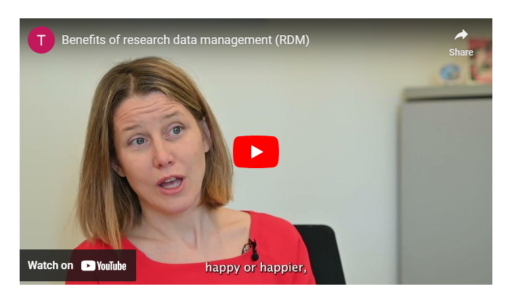NEW EHRI Online Course on Holocaust Data

EHRI launched the new free to access online course Aligning Holocaust Data with Open Research and FAIR Data Principles, produced by our partner Data Archiving and Networked Services (DANS) and offered on the platform OpenPlato (which you may Access as a guest without an account).
Research data management is an important element of responsible research and describes the practices through which data is collected and used in a research project. It plays a crucial role for the study and documentation of the Holocaust, for example in the collection, storage and sharing of data as well as the documentation, preserving, archiving or disposing of data in a secure and ethical manner.
Designed for archivists working in Holocaust related Collection Holding Institutions (CHI), researchers, data librarians, students and curators, the video and text-based course aims to teach best practices in open and FAIR (Findable, Accessible, Interoperable, Reusable) research and how to implement these practices in one’s own work through effective data management. The course also covers how to structure a data management plan for research projects and addresses the diverse character of archival collections, one of the many specific features of Holocaust related CHI. How to manage these collections? How to work with copied archives? How to improve the data infrastructure for Holocaust data?
In seven sessions of the course, ranging from “Research Data Management and Holocaust Research” to “DMPs and EHRI research” or “Open Research” these and many other questions are discussed, together with the experts of our partner institution Kazerne Dossin: Veerle Vanden Daelen, Herminio García González and Dorien Styven. With additional reading provided for each session you will be able to spend more time on each specific content and delve deeper into the topic of research data management
Access the course on OpenPlato: Aligning Holocaust Data with Open Research and FAIR Data Principles
